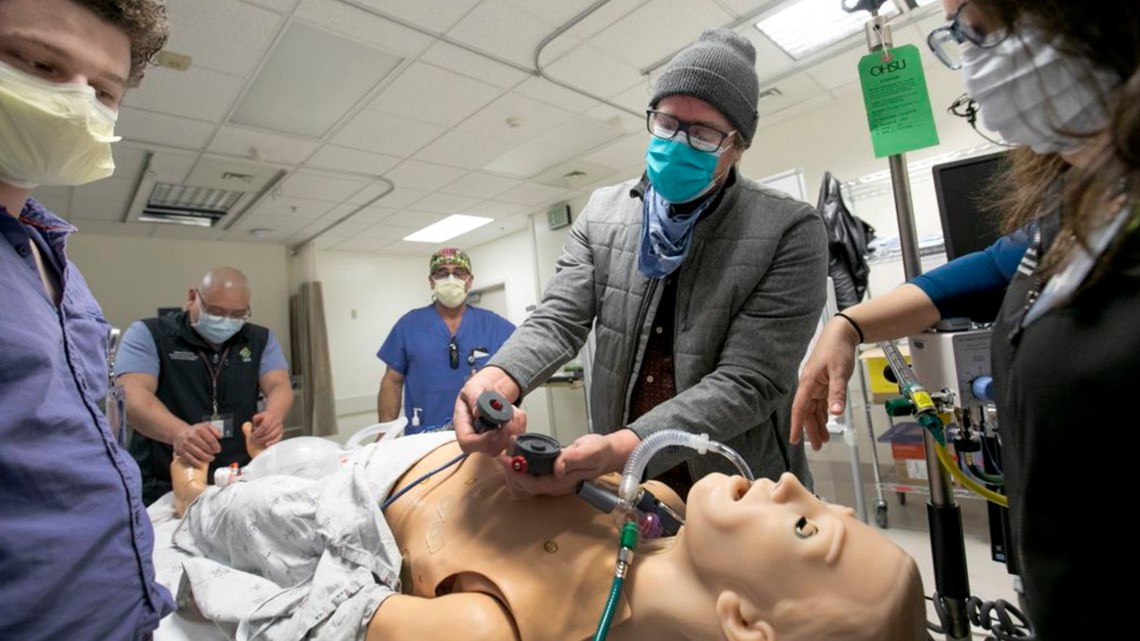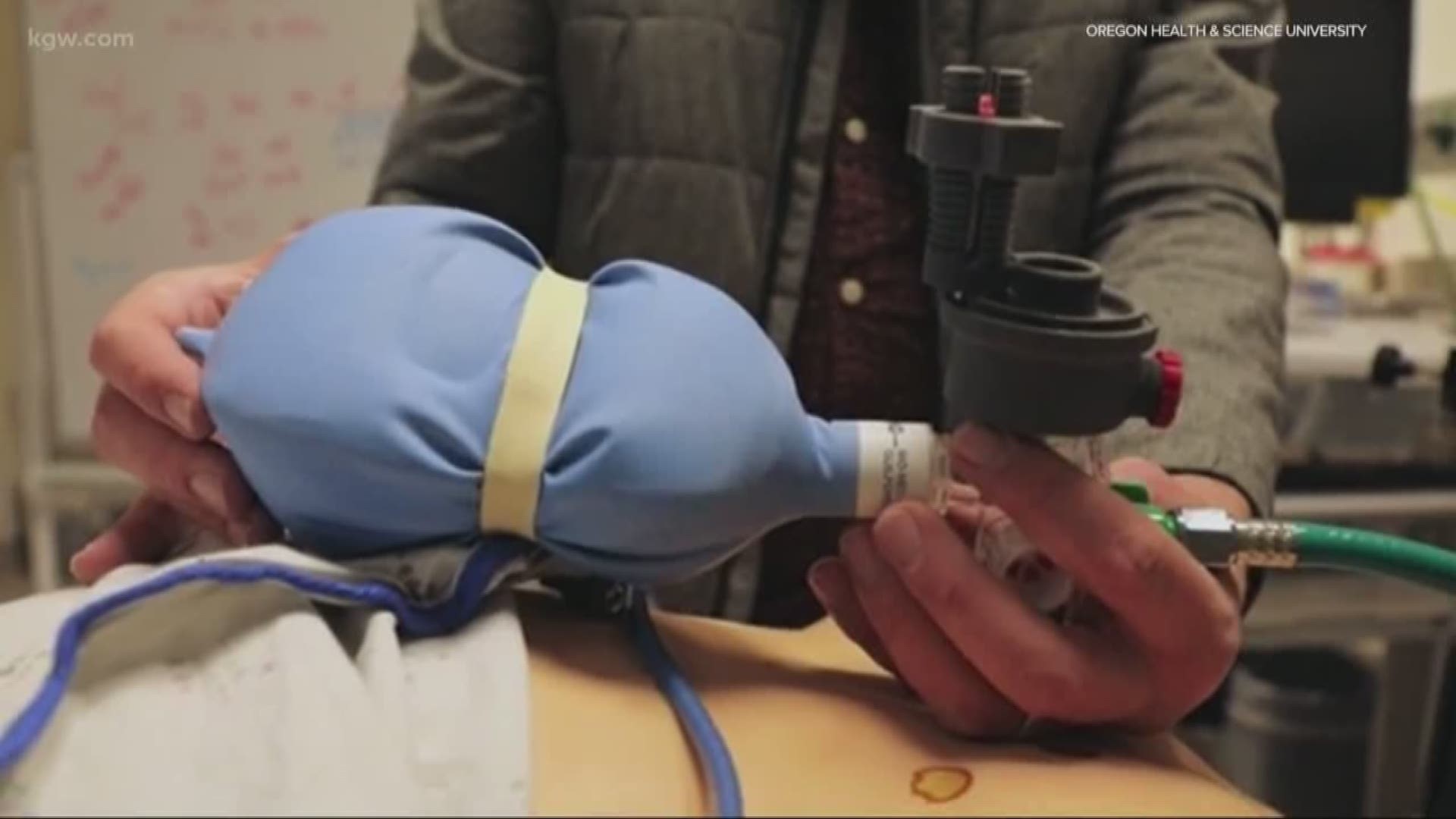PORTLAND, Ore — As health care workers across the globe fight COVID-19 on the frontlines they're not just battling the virus, but also a lack of resources.
“It was pretty nervewracking having all of our supplies running out really fast,” Dr. Albert Chi at Oregon Health & Science University said.
Dr. Chi and his team at OSHU confronted the challenge head-on. They designed a low-cost ventilator that can be widely produced with 3D-printing technology.


“This beautiful, simple design can do basic ventilation as well as advanced ventilation for people with advanced airway disease,” Chi said.
Chi has a background in engineering and pioneering 3D-printed prosthetics for children. He is leading the team, which consists of his lab research engineers Whitney Menzel and Evan Fontaine, Stephanie Nonas, M.D., and respiratory therapist Dennis Child.
Chi tells KGW that everything fell into place perfectly for his team to be able to create this ventilator in just four weeks.
“It's almost kismet,” he said. “I really felt as though our lab was made to do this.”
The design is straightforward and does not require electricity, just a standard oxygen tank. Depending on the printer – a single ventilator can be manufactured within three to eight hours and made operational with low-cost springs available at hardware stores.
The low-tech ventilators can be replicated anywhere in the world for less than $10 of material.
“It really is math and flow dynamics at its purest,” Dr. Chi said. “And if you see the vent – it really can fit in your pocket. It's a pocket-sized ventilator. It’s just shocking how well it works and how beautiful it is and how small it is.”
The ventilator designed by Chi’s team is not meant to replace sophisticated equipment using electronics. It is, however, a reliable solution when there's no other option.
“It's really choosing death versus using our crisis ventilator. I do, I honestly in my heart, believe that this can life-changing and lifesaving,” he said.
Right now, the team at OHSU is waiting for emergency use authorization from the FDA.
In the meantime, they've sent their ventilators to other medical and military institutions for feedback and evaluation, including Johns Hopkins University.
In addition, OHSU is working in collaboration with 3D-printing technology firms Stratasys, Sherpa Design Inc., and the University of Central Florida-based nonprofit organization Limbitless Solutions to produce prototypes. The team also got an assist from Oregon-based Nike, which helped by 3D-printing the team’s design.
Chi tells KGW that by working with other organizations they hope to make these ventilators available for free.
“That is our ultimate goal is to just give this gift to the world at no cost in hopes of fighting this pandemic,” Chi said.
RELATED: CDC adds 6 new COVID-19 symptoms

